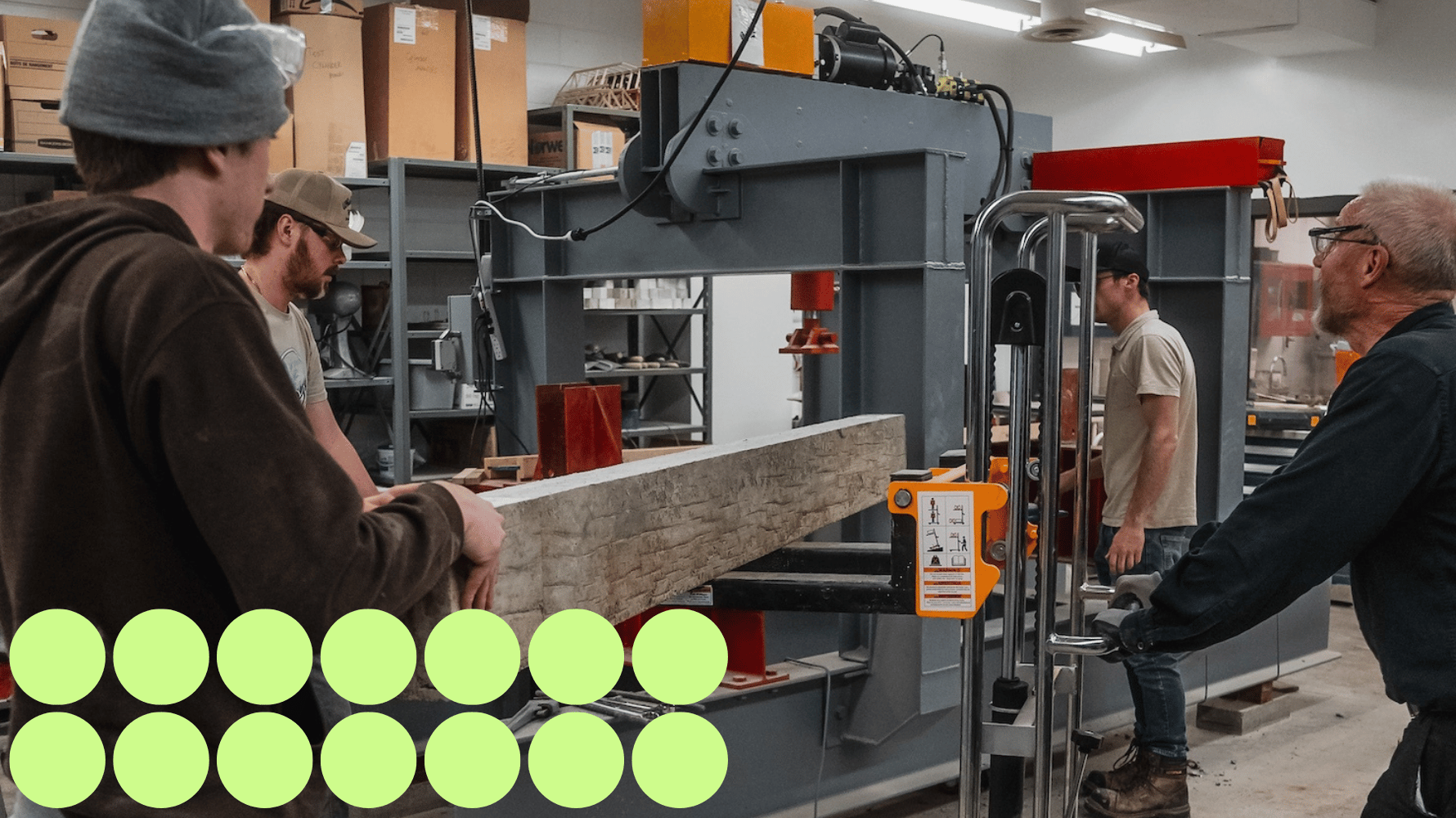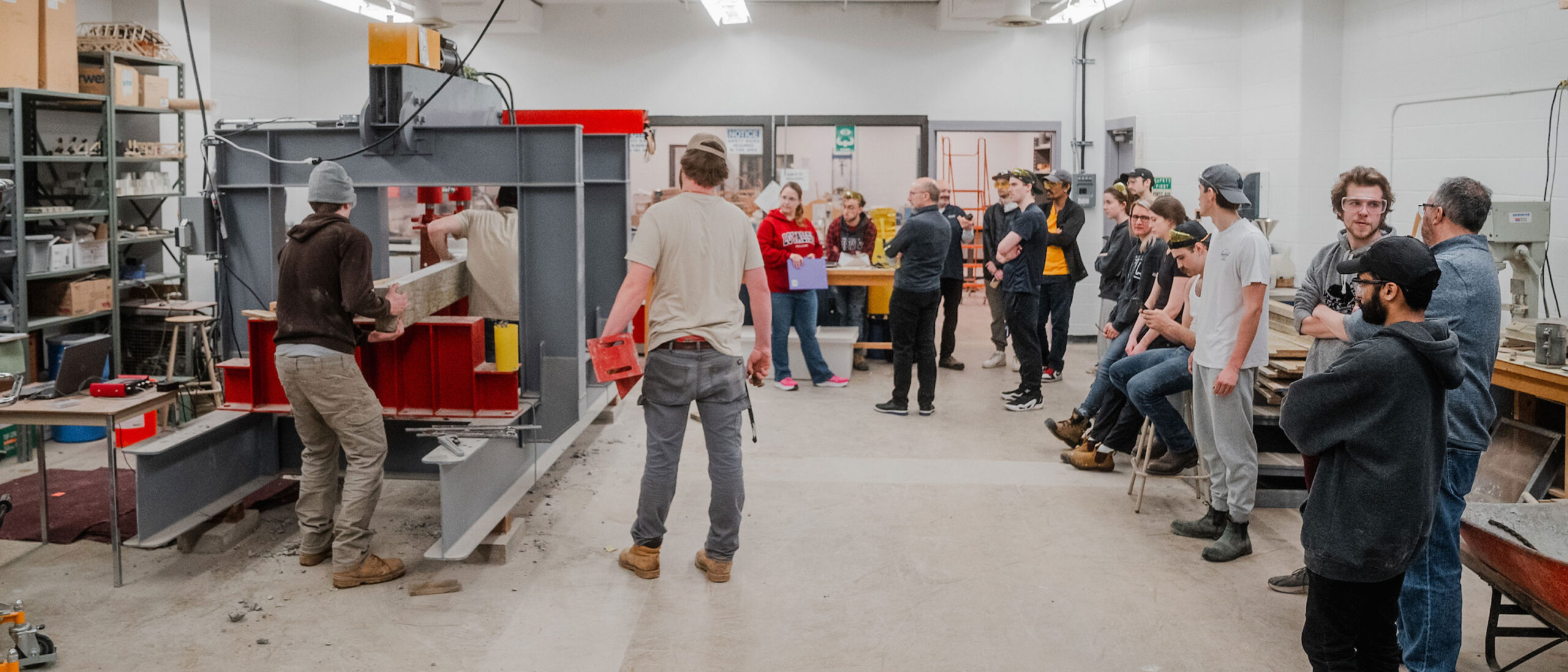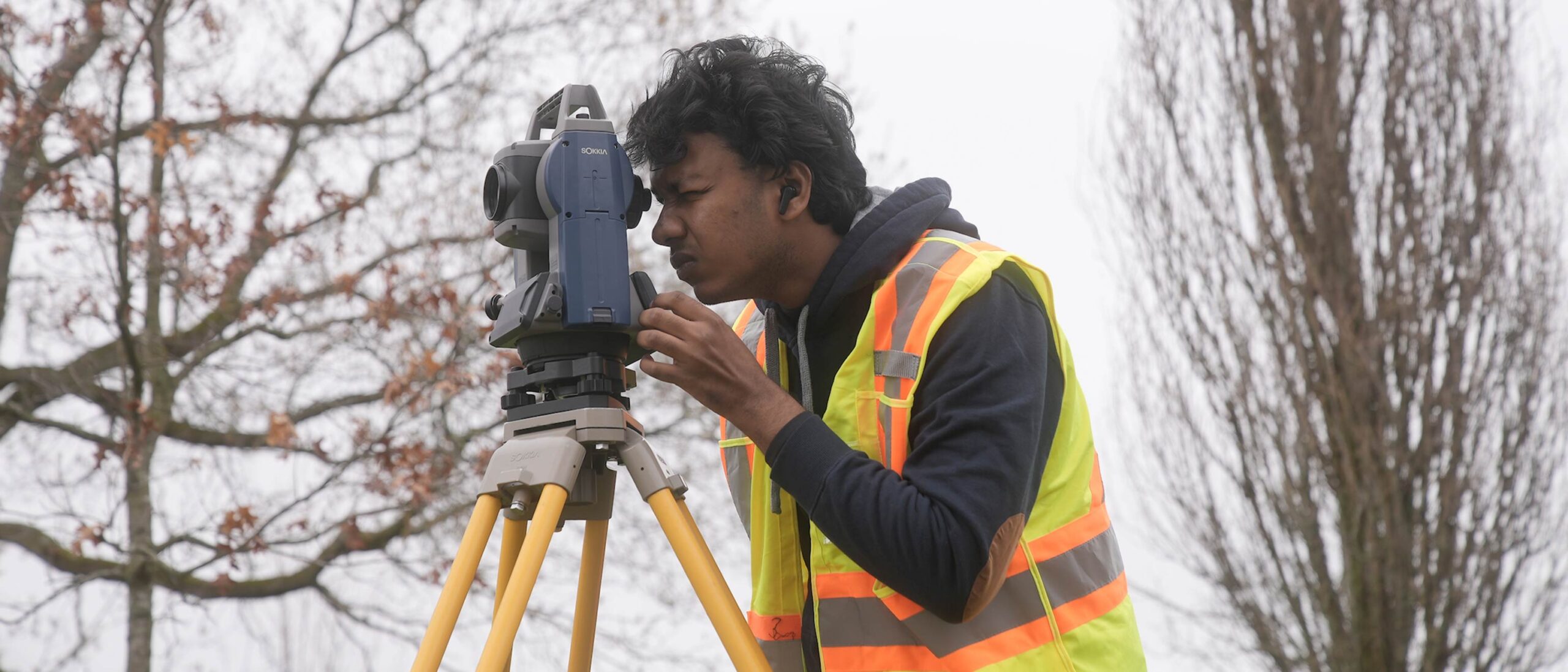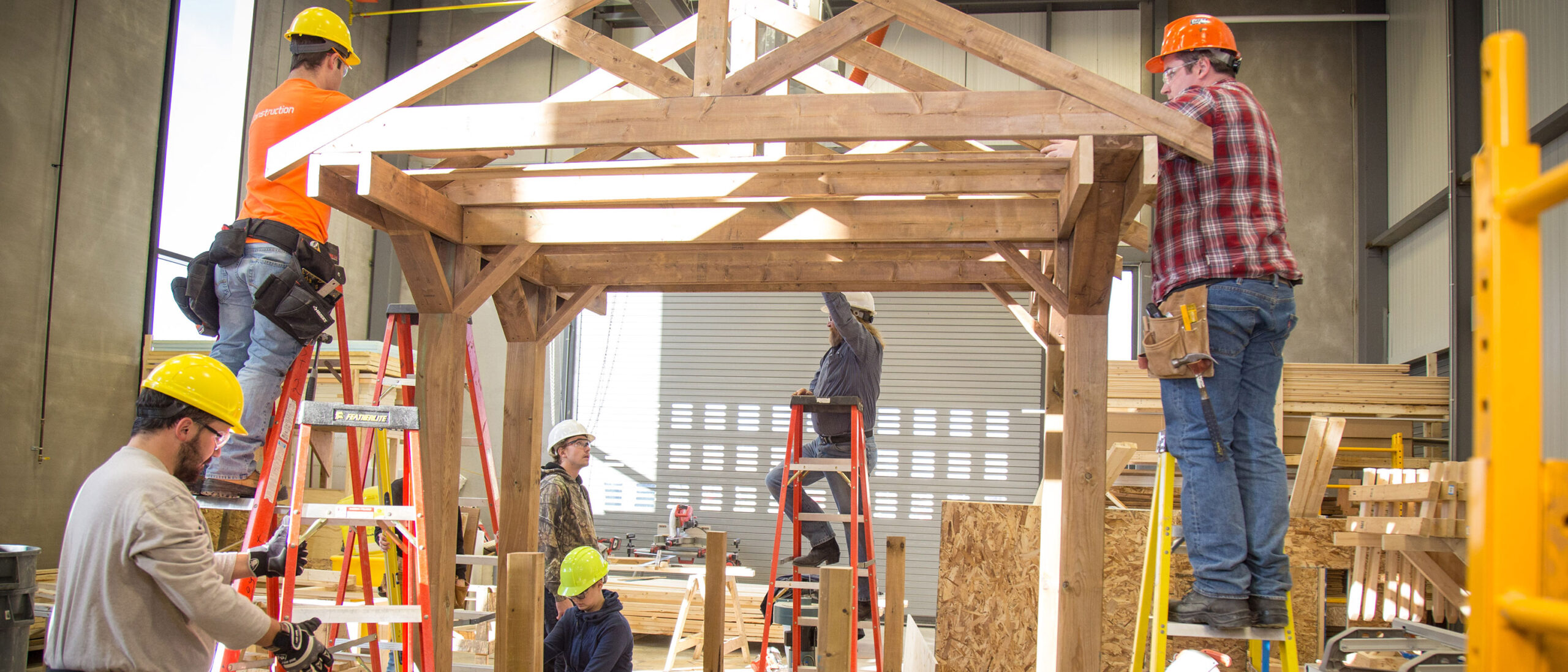Find your career
Prepare for a high-demand position in:
- Site supervision.
- Building inspection and approval.
- Construction project coordinator.
- Structural drafting technician.
- Construction estimator.
- Construction superintendent.
- Quality assurance (testing and inspection).
- Project estimating.
- Retail sales (building supply and rental).
- Construction Engineering Technicians work in the construction industry with contractors, government agencies and engineers on a wide range of building construction projects.
- Learn how to integrate science and engineering concepts with construction management skills to develop a career in building construction management, design and inspection.
- Graduates are eligible for certification with the Ontario Association of Certified Engineering Technicians and Technologists (OACETT).
Our grads get great jobs
- Grade Foreman, Drain Bros. Excavating
- Carpentry Apprentice, Highland Design Build Ltd.
- Lead Survey/Asst. Site Supervisor, Strathcona Solar Initiatives
- Inspector, G.D. Jewell Engineering
- Q.C. Administrator/Project Manager, The Miller Group
Is it for you?
Students who are successful in this program come with varied goals and experience:
- People who may wish to start their own business.
- Students who enjoy a challenge solving engineering-related problems.
- Former construction workers looking to apply their experience and knowledge in a less physically demanding job.
- People who would enjoy working outdoors, in an office, or a bit of both.






